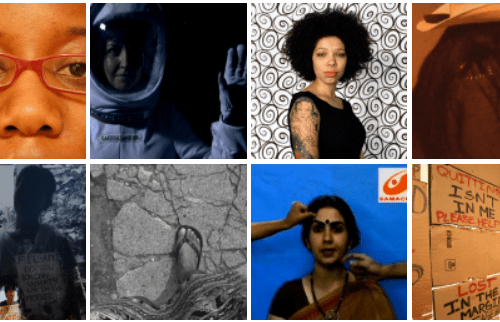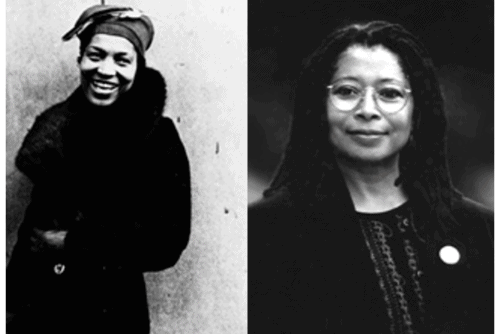Skill Sharing and Organizing Tools
“What a relief to have the chance to write an article about SONG. As a graduate student in Women’s, Gender, and Sexuality Studies at Emory University, writing is a daily activity and a skill I like to bring to my organizing work. However, academic writing can be a very particular kind of writing. At times I experience it as constrained—by requirements, time, and tone. At the same time it was my studies of gender, critical race, and anti-colonialism that politicized me tremendously—I received those engagements as gifts through teachers who were ‘on the streets’ as much as they were in the classroom as a political space. Writing about SONG, about the kind of work that moves my soul, feels liberating, makes my (keyboard) chords hum. Here I can be writing entirely from the heart.
Being able to be with SONG physically and geographically through the 2009/10 Atlanta Mentorship circle allowed for the experience of bringing our whole selves to the work and to each other. As we were reflecting on it for this article, Lamont remembered how he used to experience the struggle for social justice as exhausting. It seemed to him that self-care would automatically be the sacrifice you make, the price you pay as you are trying to make a living and to do transformative, political work. I could relate to what he was saying. When trying to fulfill a fulltime study, research, and teaching commitment, I often come up against the norms of private, capitalist education that asks students and teachers to exhaust themselves, rather than to take care of their whole selves, bodily and emotionally.
Still, in my heart, organizing work and the desire to build community are ultimately and directly transformative; I keep struggling to attend to them first and foremost. I often feel like being mindful about care work towards those I love, towards myself, and towards my community, taking the time and energy to practice non-violent relationships and to embody patience, is taken away from me. The Mentorship Circle encouraged us to look at this differently. It brought the understanding that we need to be able to create spaces to take care of ourselves and to create non-violent relationships with each other to be able to hold our experiences of violence and oppression, to live differently, and to create sustainable movements.
During our conversation for this article, the question whether people can hear each other was central. In the larger context of our work through SONG we share an understanding that trauma of our ancestors and ourselves affects our lives in ways that deserve attention. To all of us, SONG is a space that gives permission to turn to questions of trauma, survival, and liberation and to care for ourselves and for each other. The movement work SONG creates and supports has felt so profoundly different from organizing, community, and scholarly practices that try to be removed from experiences of violence and interactive skills of transformation.” —Noemi
In practice, SONG’s vision is to contribute to transformation by engaging folks who have been marginalized, by offering programs and campaigns that teach community organizers and activists how to do things themselves. Here SONG values skills-sharing, not teaching in the sense of expert/student. In particular, SONG values collective, membership-based organizing, as opposed to the tendency to look for a single hero/leader that some organizers cling to so that one person gets transformed to then pass on their knowledge to others. Grassroots education on the other hand envisions simultaneous processes of collective learning and un-learning and values the passing of knowledge, and giving credit, while it understands the legacies of the knowledge and the survival skills of our elders. The sharing of tools, for SONG, is a way of supporting work that is already being done and that people dream about doing.
During SONG’s Organizing Schools recently in North Carolina and Virginia, and also in this year’s Atlanta Mentorship Circle, we taught and learned about SONG’s multi-issue perspective on social justice issues. In one exercise we thought through land, body, spirit, and work (economy) to understand oppression as multi-faceted and interconnected. Under each rubric, we asked what we needed, what we dreamed about, and what we reflected on, in order to analyze how things, issues, and people are connected. Colonialism, housing policies, ableism, exploitation, and underpayment might appear as connected between land, body, work, and spirit, as might whether there is room for religion or spiritual practice in a certain social movement. We started with what people know; for instance, drawing a map of one’s neighborhood can be a tool for power analysis around resources and surveillance: are there sidewalks, grocery stores in walking distance, public transportation, where are the police, who do they put under surveillance?
Another way of inviting full selves is a popular education tool, an exercise called Story Circles 1. By sharing our stories, voices, and experiences when introducing ourselves to each other, we take something that is individual and make it collective. “What have your people done to survive?” We answer as we are getting to know each other, maybe touching on resistance and holding on to dignity as survival, maybe touching on privilege and violence as carriers of power. Similarly, we demonstrate that struggles that are individualized in order to keep them marginal are in fact tied to larger social structures and institutions. Poverty is not a problem, or the “fault” of individual people; it is tied to systems of social dominance like capitalism and racism that are built upon inequality and that systematically inform state policies. When analyzing the distribution of resources in society for instance, an analytic lens of violence/ownership can illustrate how ideas such that land can be owned are invented rather than given.



